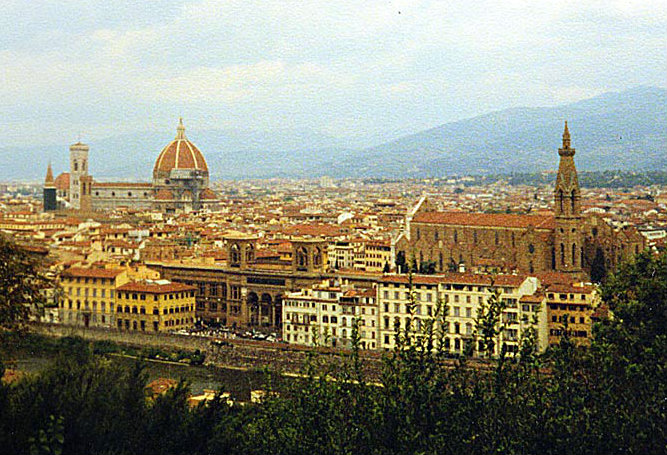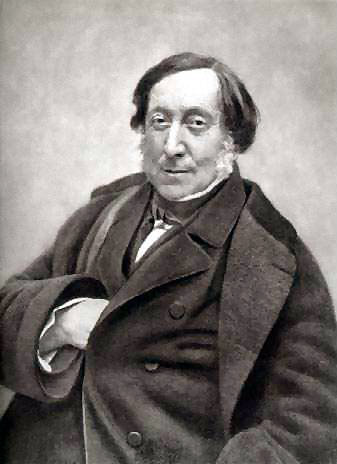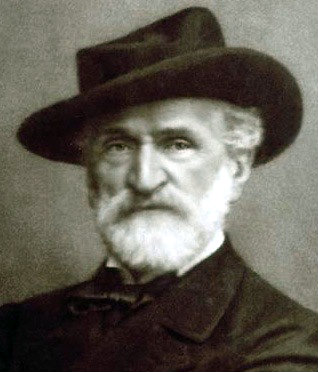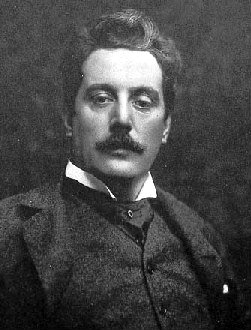

In the heart of Tuscany’s rolling hills and vineyards is Florence – the epicenter of the Renaissance. Artists such as Michelangelo, Raphael and Botticelli all came from Florence, as did writers Dante and Machiavelli, the scientist Galileo and the ultimate Renaissance man, Leonardo da Vinci.
So it’s no wonder that in this wealth of artistic and scientific creation, a whole new art form would be born: opera.
In the late 1500s a group of prominent Florentine composers, poets, scholars and intellectuals came together to form a group called Camerata. Their goal was to revive Greek dramas which they believed may have been partially sung. And thus began the marriage of drama and music that still captivates us today.
Those very first operas were a huge hit, with opera houses popping up throughout Italy and then spreading across Europe.
French and German composers were quick to pick up the new art form and begin writing opera in their own languages.
In France, composers added ballet scenes to operas to attract audiences. The gentlemen of the famous French “Jockey Club” were regulars at the opera but demanded that the ballet scene be placed in the second act of the opera because they were habitually late to the theater.
But perhaps the most monumental shift that opera brought to the music world was that for the first time, “high” art wasn’t just for the aristocratic class. Opera became the people’s music, where many could afford the cheap seats.
But back to Italy. In this land of hillside vineyards, red tiled roofs and winding country roads through olive groves and ancient cities and fortresses, came (at least) three indispensable opera composers.

Rossini wrote hit after hit, making him the most famous opera composer in all of Europe. For 15 years Rossini ruled opera. “The Barber of Seville,” “Cinderella,” “The Turk in Italy,” “Semiramade,” “William Tell” -- 38 operas in all by the time he was 37 years old.
And then -- almost nothing. Rossini effectively retired before he was 40. No more operas. A few more works, but no more opera.
He was never very forthright as to why, except once a music critic said, “Rossini used to be stuffed with music…now he’s stuffed with prosciutto.”
A tired Rossini replied: “Notes are like women. When they come looking for you, well and good. When you start looking for them, it’s time to quit.”

Verdi was one of the most influential composers of the 19th century. He completely transformed opera, focusing on drama and demanding huge strength from his singers.
In the era before Verdi, the bel canto style of singing was the rage. Bel canto means “beautiful singing,” and while that may sound like “beautiful melodies” to us today, bel canto means intricate musical passages requiring supreme ability and pitch control.
Think of the acrobatic, coloratura soprano lines you hear in Rossini operas. But critics of bel canto said it was devoid of content, so Verdi set out to change that – beginning with “Nabucco.”
“Nabucco” tells the biblical story of the Hebrew slaves, but in reality it was a thinly veiled hymn of freedom and revolt for his fellow Italians suffering under oppressive Austrian overlords.
The magnificent chorus “Va, Pensiero” became an anthem for Italian autonomy that was sweeping the nation.
When Verdi died nearly 60 years after “Nabucco,” 300,000 people lined the streets to watch his funeral cortege and it is said that the mourners spontaneously broke into “Va, Pensiero” as the cortege passed by them.
None other than Arturo Toscanini led a group of over 800 singers at the funeral service.

Puccini took the opera reigns from Verdi and helped to pioneer what’s known as the verismo style of opera – meaning realistic. Verismo style portrays life as it really is especially for the lower class.
Puccini had rich source material for his operas because as a young composer he was penniless. Like many young, financially challenged students, he and his roommate, fellow composer Pietro Mascagni, subsisted mostly on beans, which Puccini refused to eat later in life.
Once, he pawned his coat, as Colline does in “La bohème,” so he could take a pretty girl out on a date. Puccini’s stories of love transcend any time or place they were written in and will continue to touch the souls of today as long as they are heard.
So as you dream about winning the fantastic trip to Tuscany, just imagine Rossini, Verdi and Puccini traveling those same roads and seeing the same ancient villas and red tiled roofs that you’ll see if you’re the winner of the sweepstakes!
CPR's sweepstakes for a trip to the Heart of Tuscany will end at 6 p.m. Monday.








